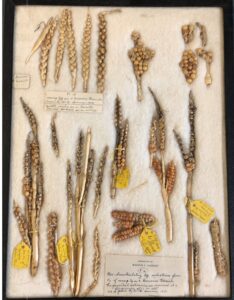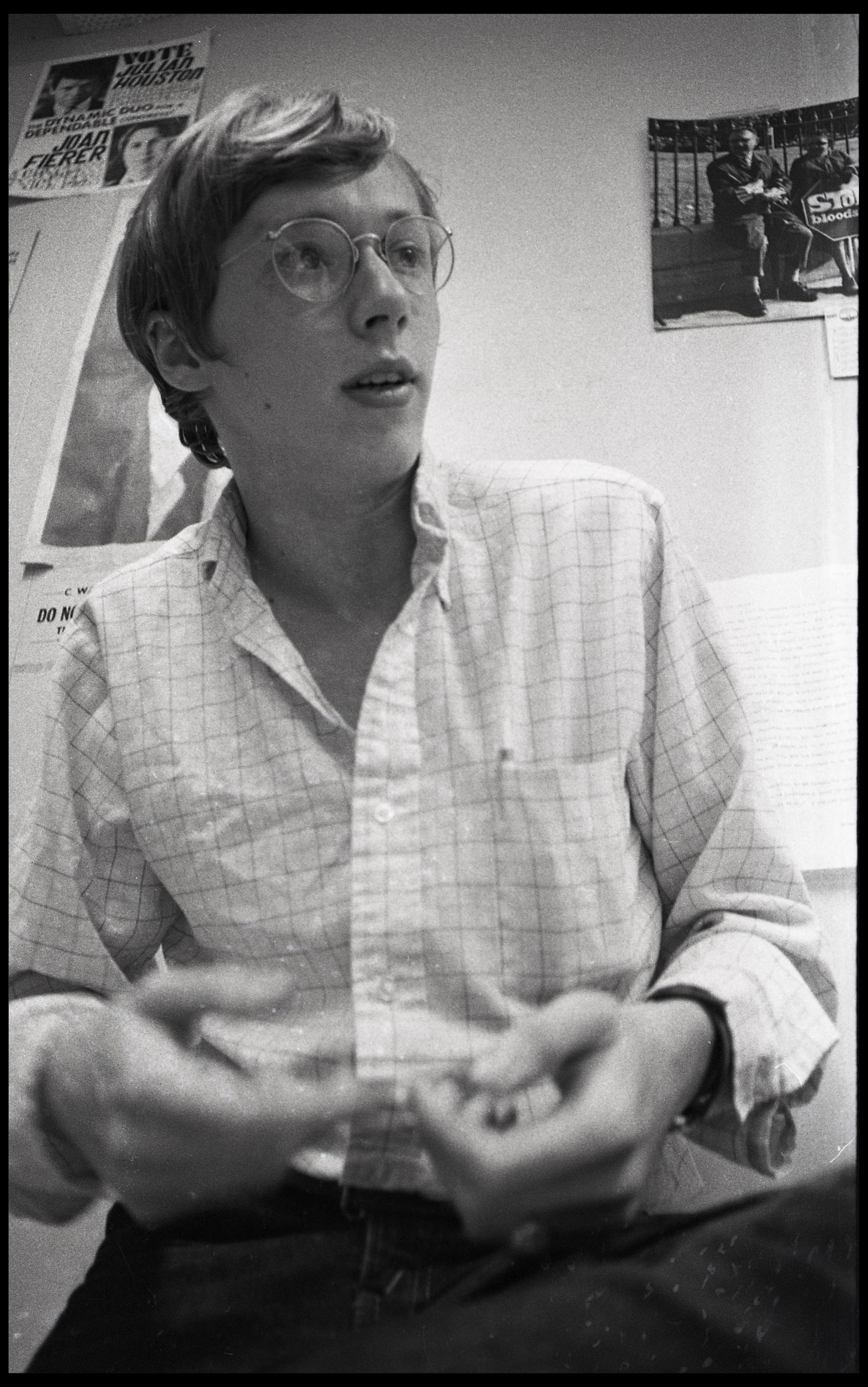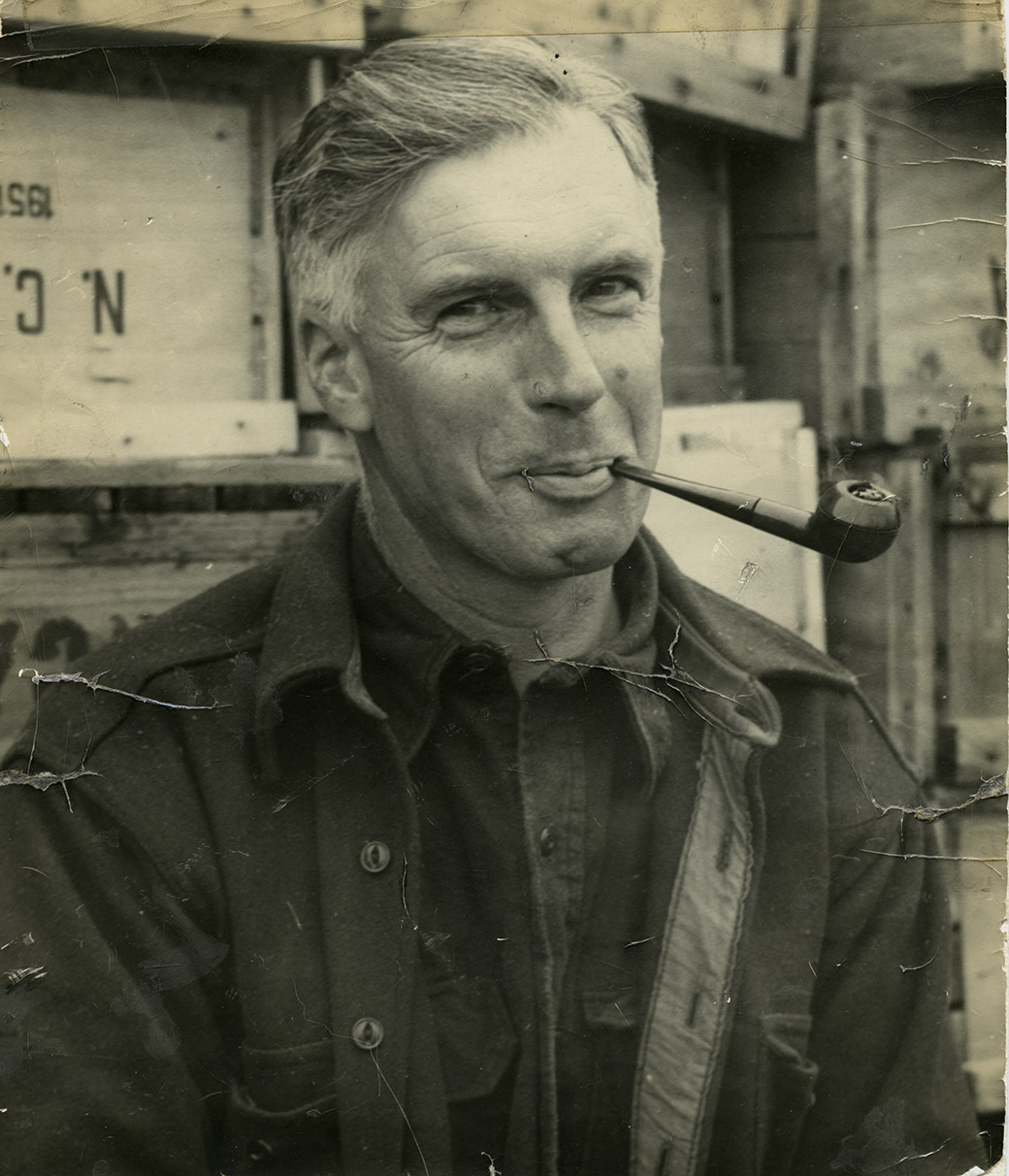Walton C. Galinat Papers
ca. 1964-1991
4 boxes 6 linear feet
Call no.: FS 205
 Corn sample, Herbarium of Walt C. Galinat, 1971
Corn sample, Herbarium of Walt C. Galinat, 1971
Born in 1923 in Manchester, Connecticut, Walton Clarence Galinat was a corn enthusiast for almost his entire life. He worked with various aspects of corn in high school, as an undergraduate student assistant at the Connecticut Agricultural Experiment Station, in graduate school at the University of Wisconsin, as a research associate at Harvard University, and finally, as a professor at the University of Massachusetts Amherst, where he worked at the Waltham Field Station as a plant geneticist from 1964 until his retirement in 1990. A contributing author to more than 300 published papers, Galinat spent significant parts of his research career in Mexico studying ancient maize, but was also deeply embedded in New England farming and corn production and sustainability. In addition to his world-renowned research on corn evolution, morphology, and diversity, he is credited with the development of many varieties of corn, including Candy Stick, “airplane corn,” and a red, white, and blue kernel variety. His skill as an artist was also recognized across his field and beyond, with his articles often accompanied by beautifully detailed illustrations of corn samples, his widely distributed and used teaching illustrations, and with a few of his hand-drawn corn diagrams permanently displayed in the National Academies Building in Washington D.C. The Waltham Experiment Station building retains several of Galinat’s oversized 3D art models of corn plant migrations and lifecycles to this day. Amongst many honors, Galinat was awarded the prestigious Distinguished Economic Botanist Award from the Society for Economic Botany in 1994.
The Walton C. Galinat Papers document Galinat’s academic, service, research, and artistic work during his time at the Waltham Experiment Station while employed as a professor at the University of Massachusetts Amherst. Roughly half the collection is administrative and professional materials, including correspondence; research files and journals, with numerous detailed hand-drawn illustrations; Experiment Station and Hatch annual reports and grants; UMass administrative memos, reports, and files; and photographs of corn samples as well as individuals from Experiment Station, Home Economics, and 4H clubs. The other half of the collection consists of three-dimensional corn display samples and pressed corn and grass from Galinat’s personal herbarium.
Retreived from Waltham Experiment Station (Waltham Field Community Farms), 2021
Subjects
Corn--GeneticsUniversity of Massachusetts Amherst--FacultyUniversity of Massachusetts Amherst. Department of Environmental SciencesTypes of material
Herbaria (documents)




